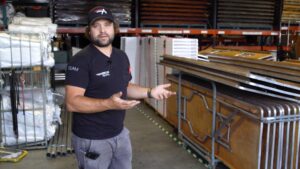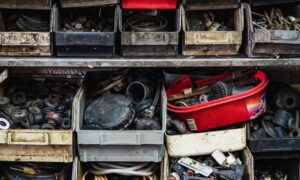We’ve all been there before: You knew you had a vacation coming up. You made a list of what you’d need. You prepared. You packed. And when you arrive at your destination, you realize you forgot the toothpaste (or some other item).
If you’re lucky, the thing you forgot is something cheap you can get at a hotel lobby or a nearby convenience store.
If you’re in the event rental industry, forgetting something means you’re often making a second run – back to the warehouse to pick up what you forgot, then out to a customer site again. And because events can be such a big deal, with thousands of line items going on several trucks, often over a period of a few days…the opportunities to forget something are plentiful.
It may not feel like forgetting a table is killing you as it happens, but the pain of repeated second runs adds up a couple of ways:
- You’re wasting your time and resources. From paying hourly staff to gas costs and truck maintenance, a large event company can spend nearly $1 million a year on second runs alone.
- You end up making good on customers’ wasted time. Events tend to be pretty strict on their schedule. A wedding or a graduation aren’t going to wait for you to come back with the extra tent pole or the eight chairs you forgot. If you’re working in film production, a missing piece of equipment on a remote set can cost a day of shooting. Not only will it be costing a lot to return with the proper item, you’re going to have customers demanding big discounts and even then, losing faith in you for future projects.
OK, second runs are expensive – so how do you reduce them?
Rental software is a critical asset in the battle against second runs and other time/money wasters.
Your software should be able to handle the logistics of a large event. It should be able to track which items are on which truck and when they arrive. It should update contracts so you’re loading the correct items on the truck for Day 3 of an install. It should track your tent component pieces so you’re never missing a tent pole or a stake.
Point of Rental’s software is built to handle the challenges faced by rental companies, because it’s built by people who grew up in the rental industry. To learn more about how Point of Rental works to reduce second runs and other profit killers, contact [email protected].



